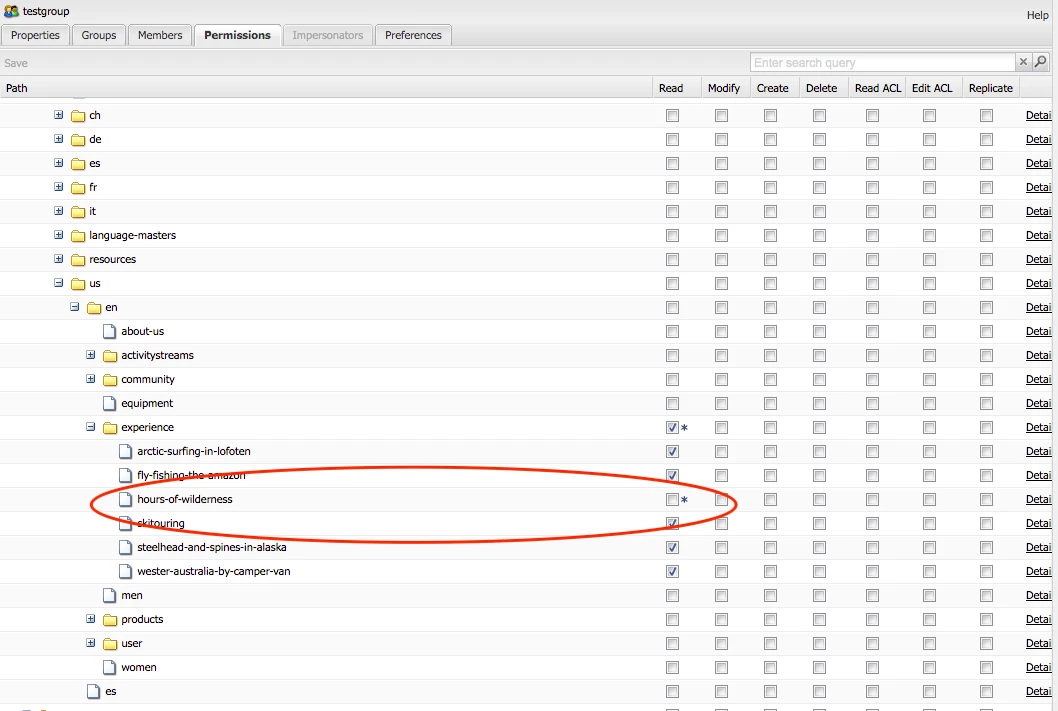How to set up a rep:policy(deny) for a specific user group to not access an AEM page programmatically
Hi,
I have a requirement where I should set up a deny (rep:policy) access to an user group(Eg: testgroup) under a specific AEM page (Eg: /content/we-retail/us/en/experience/hours-of-wilderness) programmatically based on the checkbox property authored in page properties as shown in the screenshot below.

I know we can manually set up the privileges/permissions using user admin interface shown in screenshot below

When we provide deny jcr:read access in user admin, AEM creates a rep:policy/deny node under the page for that specific usergroup (eg: testgroup). However I want to achieve this programmatically.

Could someone suggest/provide an example to implement this use case ? please let me know if you need any additional information.
Thanks in Advance,
Regards,
Sri.